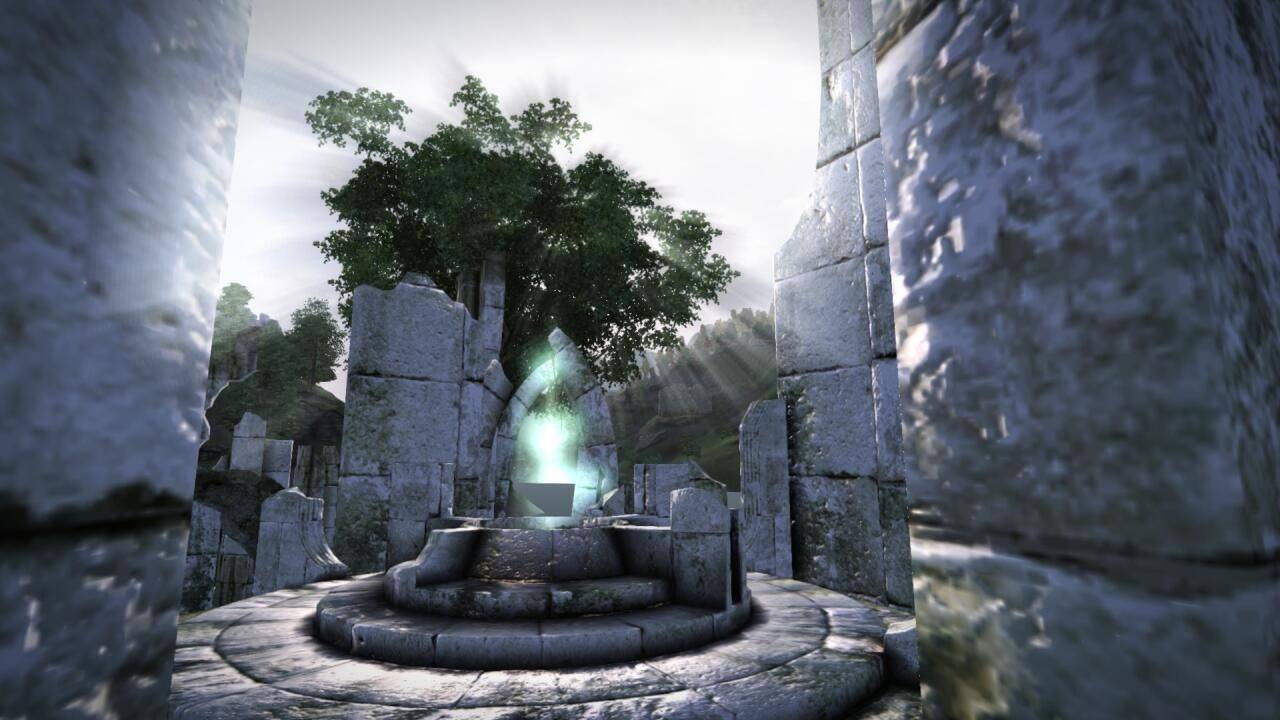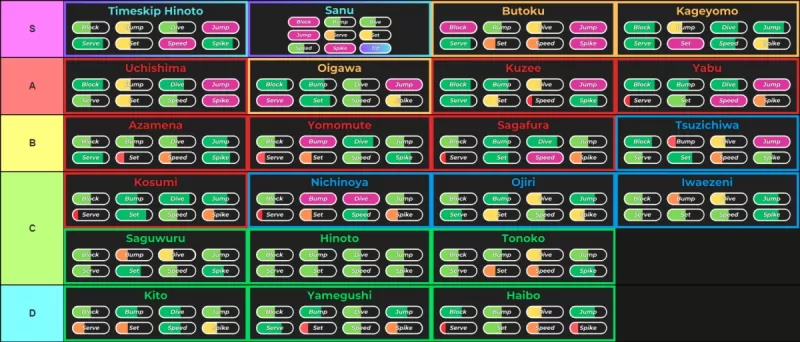The Nvidia GeForce RTX 5090's release left many enthusiasts wanting more, offering only a marginal improvement over the RTX 4090 while commanding a significantly higher price. However, the Nvidia GeForce RTX 5070 Ti emerges as a more compelling option. Despite not being a major leap in performance from its predecessor, its affordability makes it a standout choice in the Blackwell lineup, especially for those not looking to break the bank.
Priced at a base of $749, the RTX 5070 Ti positions itself as an excellent 4K graphics card, effectively challenging the more expensive RTX 5080. It's important to note, however, that the review model I tested was an aftermarket MSI variant priced at $1,099, which is pricier than the $999 RTX 5080. If you can secure an RTX 5070 Ti at its base price of $749, it's likely the best graphics card for most consumers, particularly those eyeing 4K gaming.
Purchasing Guide
The Nvidia GeForce RTX 5070 Ti will be available starting February 20, 2025, with a base price of $749. Be aware that various versions of this GPU will be sold at higher prices. At $749, it offers great value, but its appeal diminishes as the price approaches that of the RTX 5080.
Nvidia GeForce RTX 5070 Ti – Photos
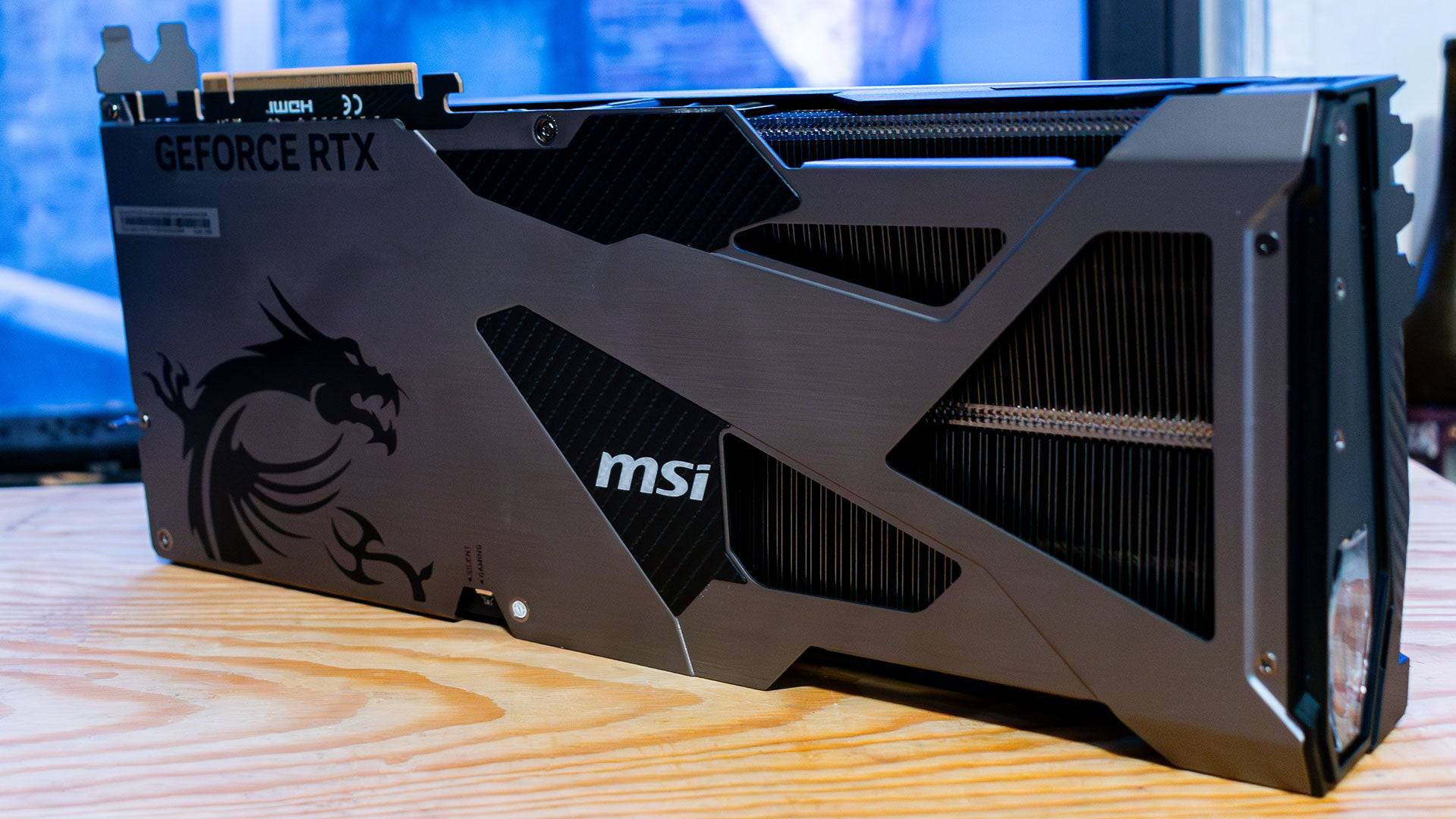
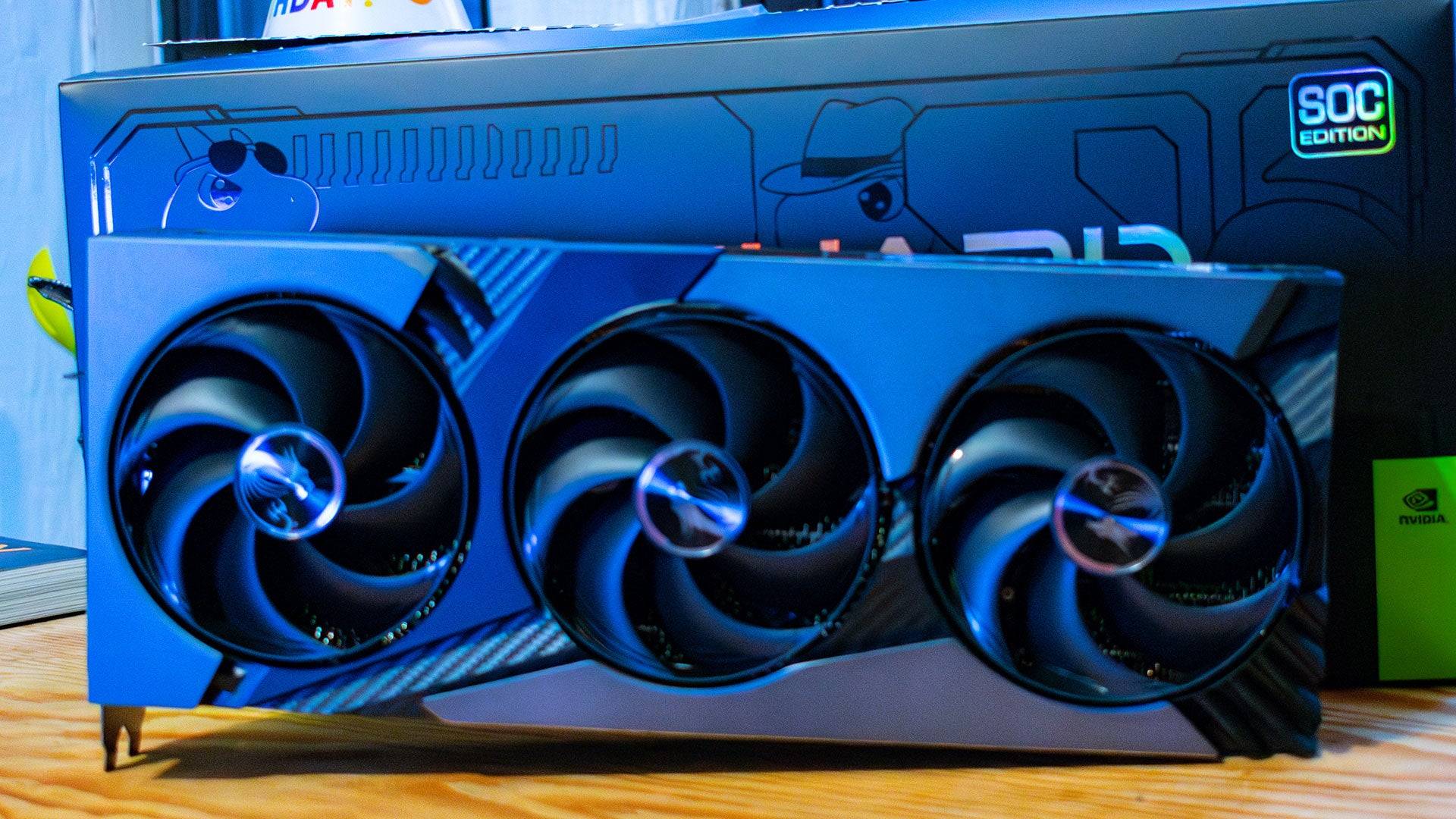 6 Images
6 Images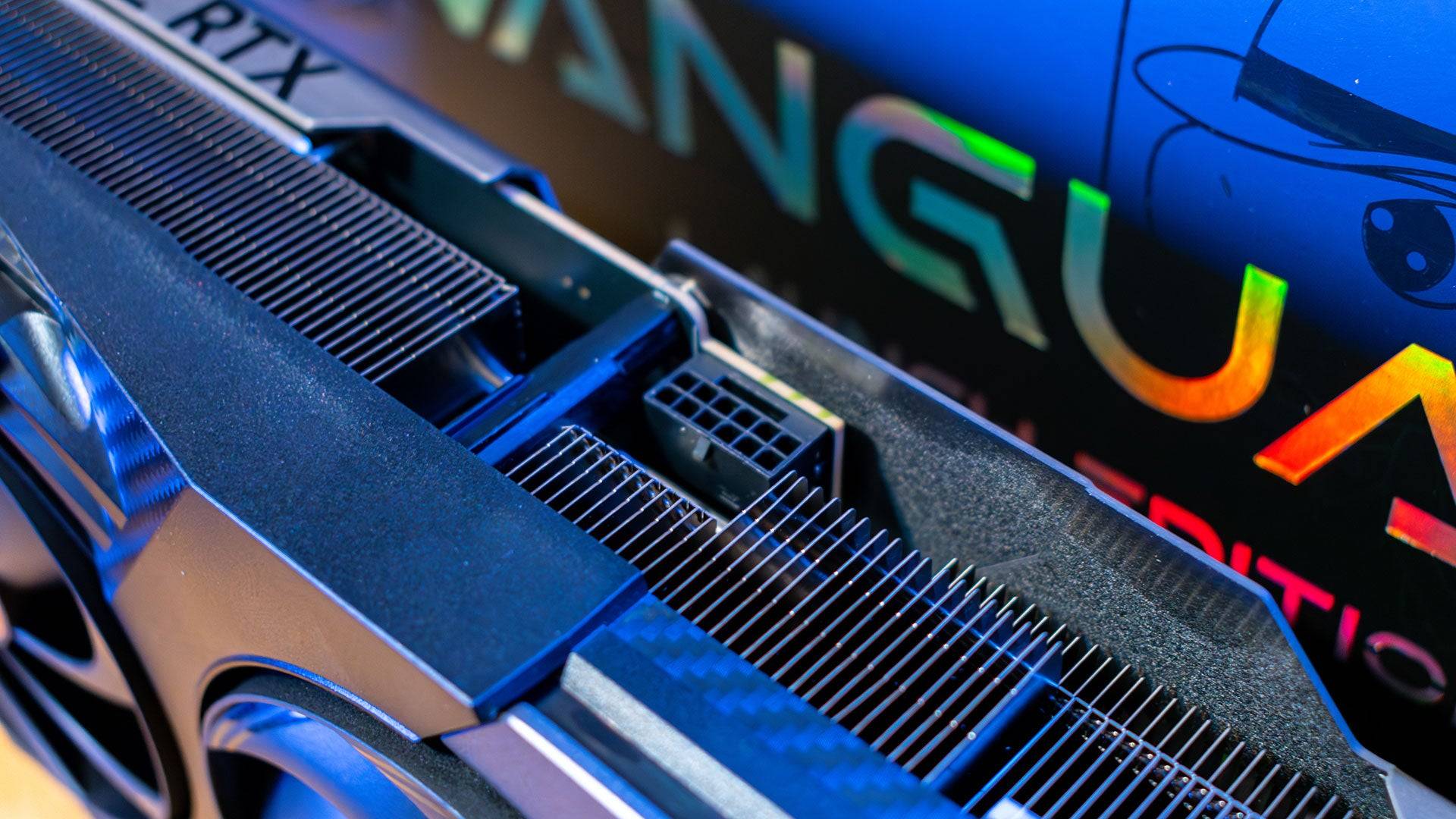
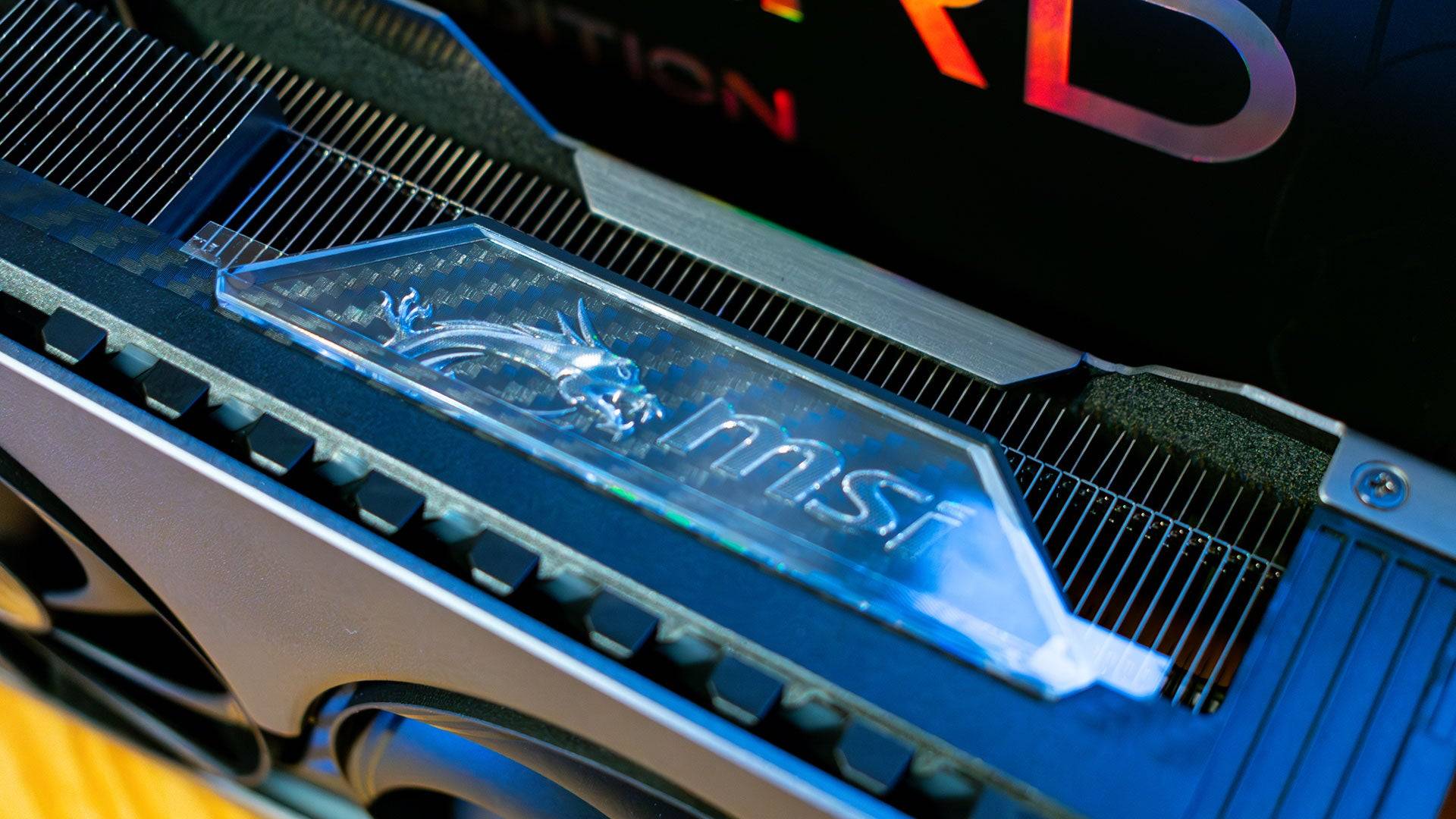
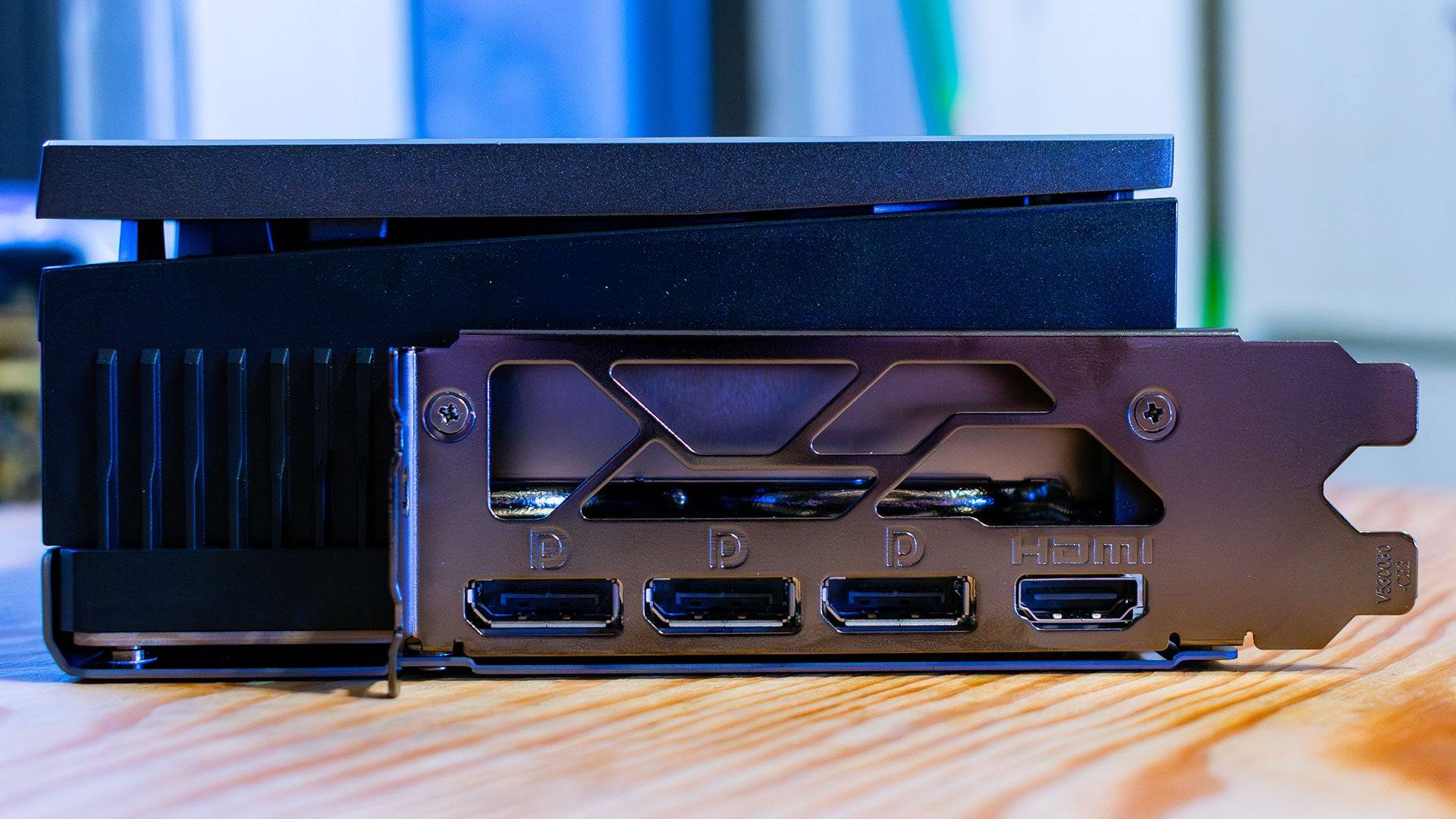

Specs and Features
The RTX 5070 Ti is the third graphics card to leverage Nvidia's Blackwell architecture, originally developed for AI-focused supercomputers like those powering ChatGPT. This architecture is now adapted for gaming GPUs, maintaining a strong emphasis on AI capabilities.
Utilizing the same GB203 GPU as the RTX 5080 but with 14 streaming multiprocessors (SM) disabled, the RTX 5070 Ti features 70 SMs, resulting in 8,960 CUDA cores, 70 RT cores, and 280 Tensor Cores. It also includes 16GB of GDDR7 RAM, though slightly slower than the RTX 5080. The Tensor Cores are pivotal, enhancing performance through AI-driven upscaling and frame generation.
A notable addition to the Blackwell architecture is the AI Management Processor (AMP), which streamlines GPU operations traditionally handled by the CPU. This enhances the efficiency of processes like DLSS and frame generation. DLSS now operates on a Transformer model, significantly improving image quality by reducing ghosting and artifacts.
DLSS 4 introduces Multi-Frame Generation (MFG), capable of generating up to three AI frames for each rendered frame, potentially quadrupling frame rates. However, this comes with increased latency, mitigated to some extent by Nvidia's Reflex technology.
With a 300W Total Board Power budget, the RTX 5070 Ti's power requirements are similar to those of the RTX 4070 Ti and RTX 4070 Ti Super. Nvidia suggests a 750W power supply, but for safety, an 850W PSU is recommended, especially for high-end models like the MSI Vanguard Edition.

DLSS 4 – Is It Worth It?
While the RTX 5070 Ti offers improved performance over its predecessor, the highlight of this generation is DLSS 4, especially its multi-frame generation feature. This technology can significantly enhance frame rates on high-refresh-rate monitors, though it does not reduce latency dramatically.
In games like Cyberpunk 2077, the RTX 5070 Ti achieves 46 fps at 4K with the Ray Tracing Overdrive preset and DLSS set to performance. Enabling 2x frame generation increases this to 88 fps, while 4x frame generation reaches 157 fps, although with increased latency. In Star Wars Outlaws, the card achieves 67 fps at 4K Max settings with DLSS performance, which increases to 111 fps with 2x frame generation and 188 fps with 4x frame generation, with minimal latency increases thanks to Reflex.
Multi-Frame Generation enhances visual smoothness on high-refresh displays but does not improve responsiveness. The technology performs best at higher frame rates, ensuring minimal lag and artifacts, which is well within the RTX 5070 Ti's capabilities at 4K.
Nvidia GeForce RTX 5070 Ti – Benchmarks
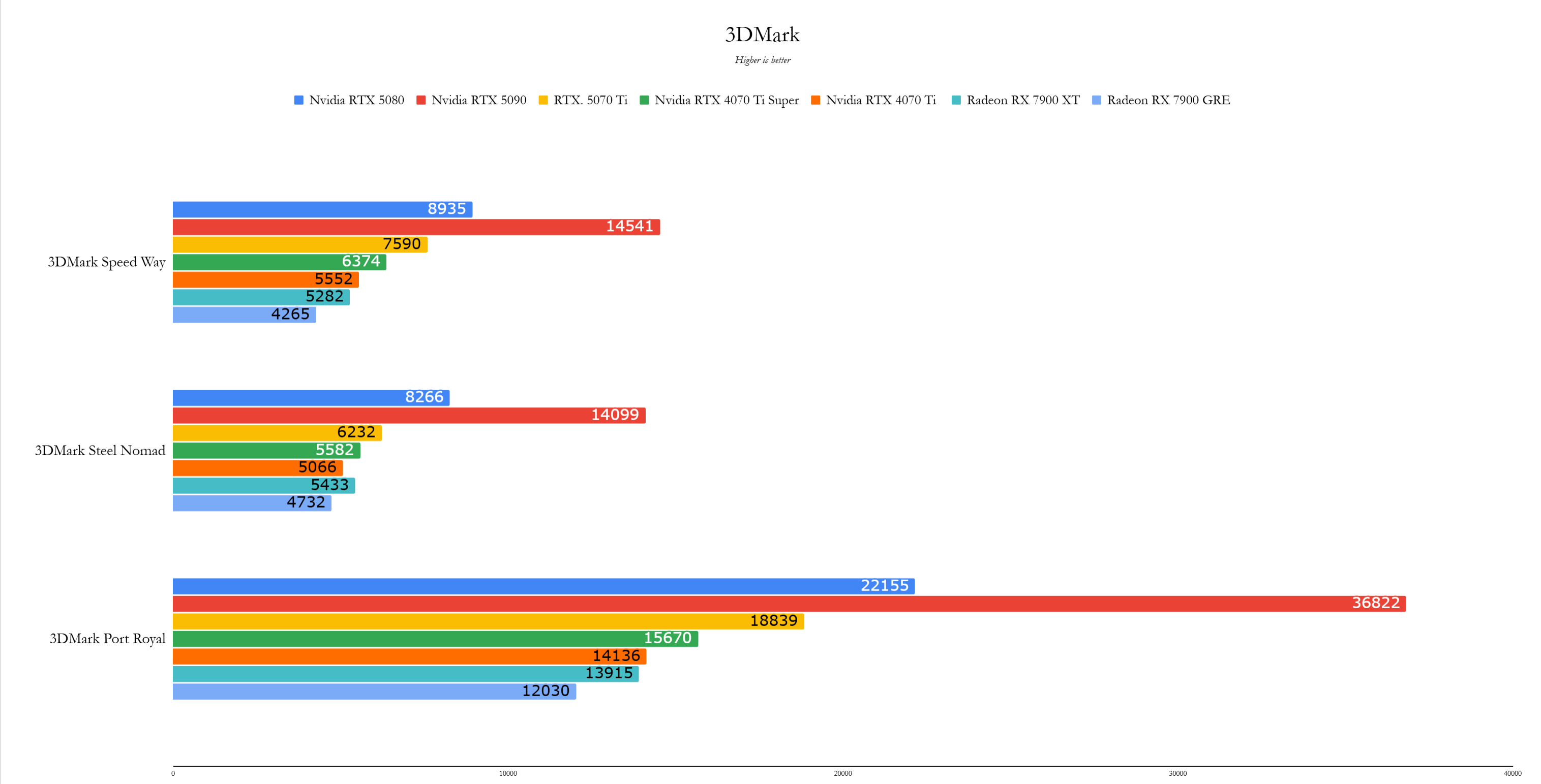
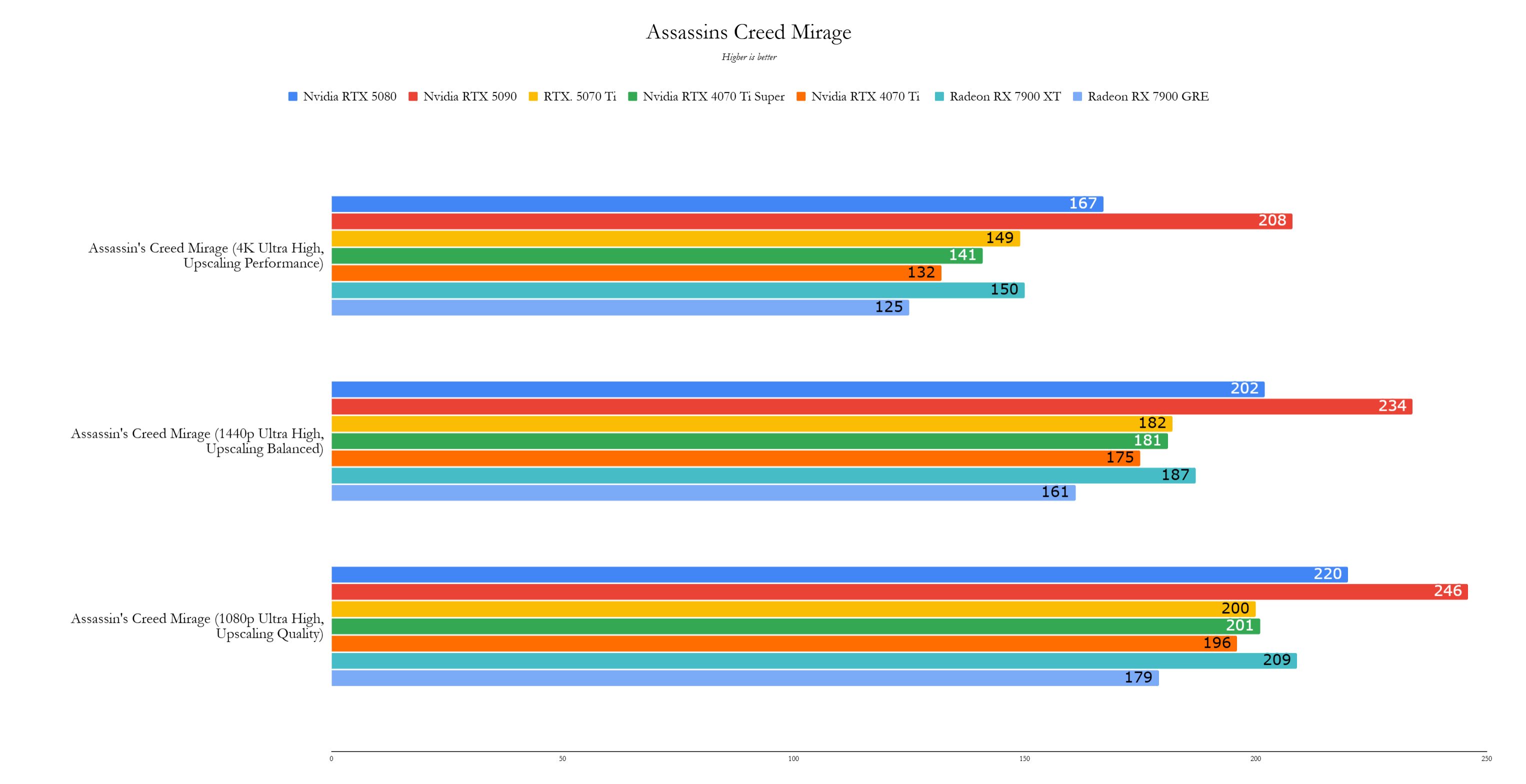 12 Images
12 Images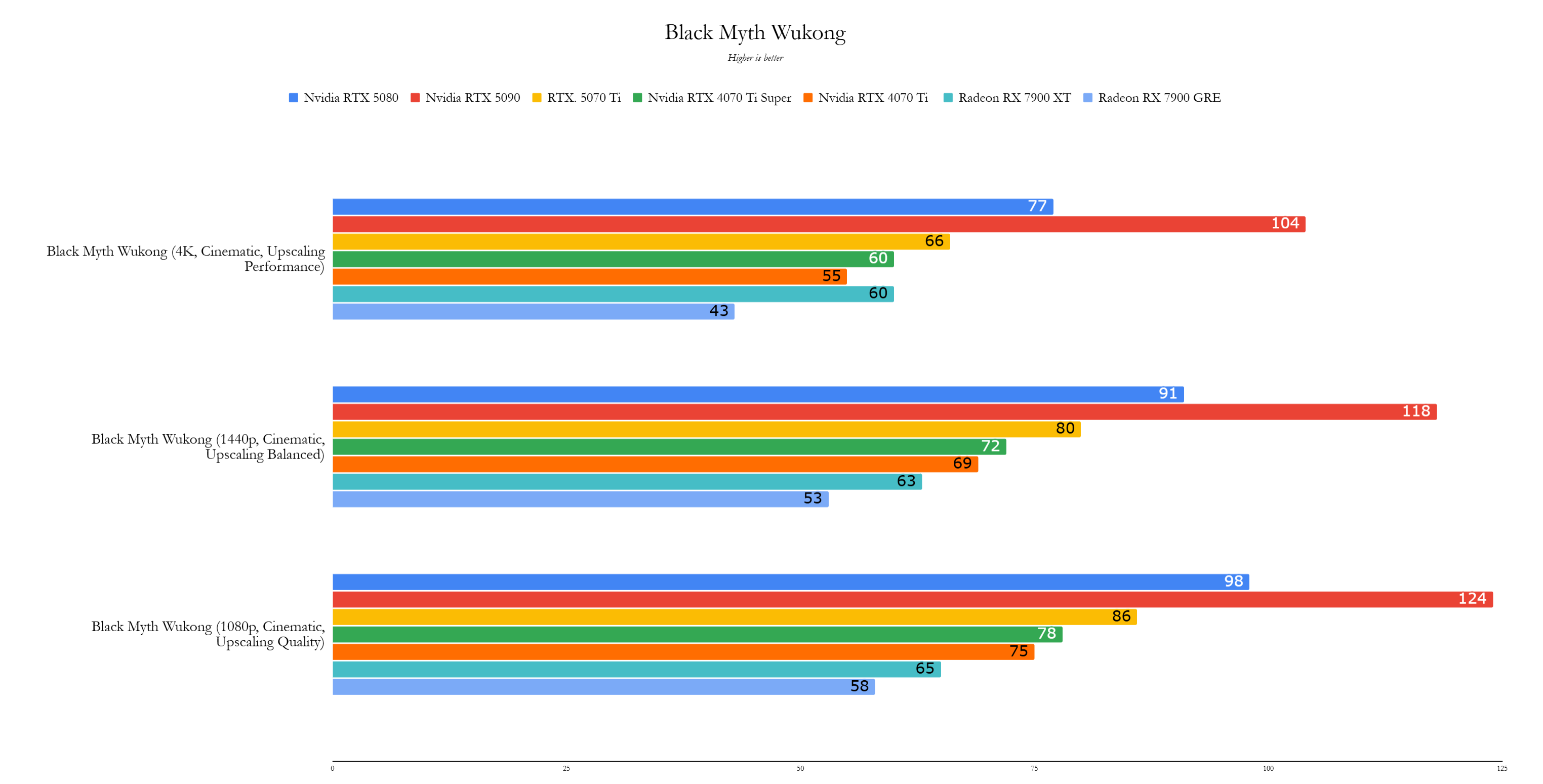
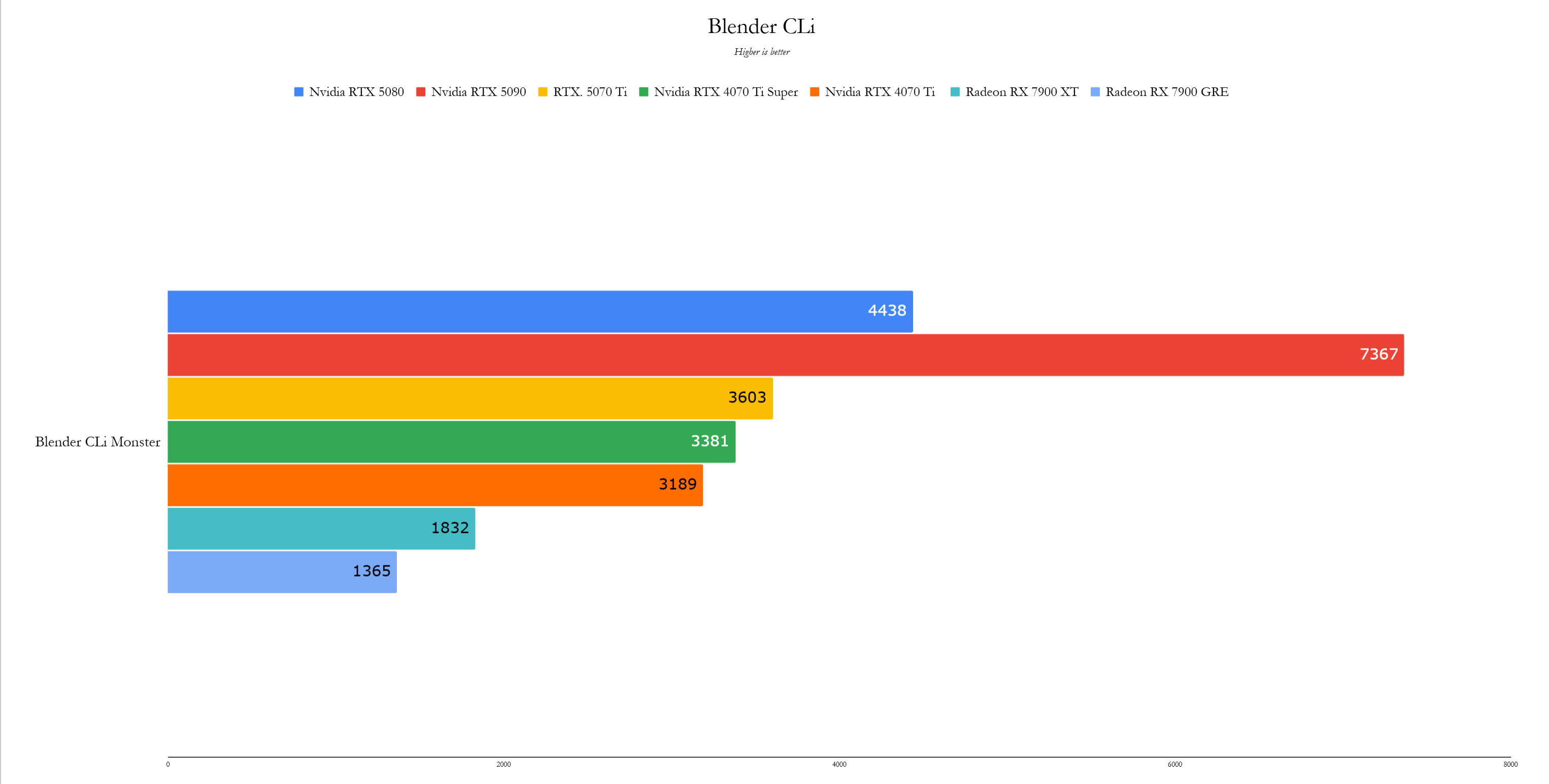
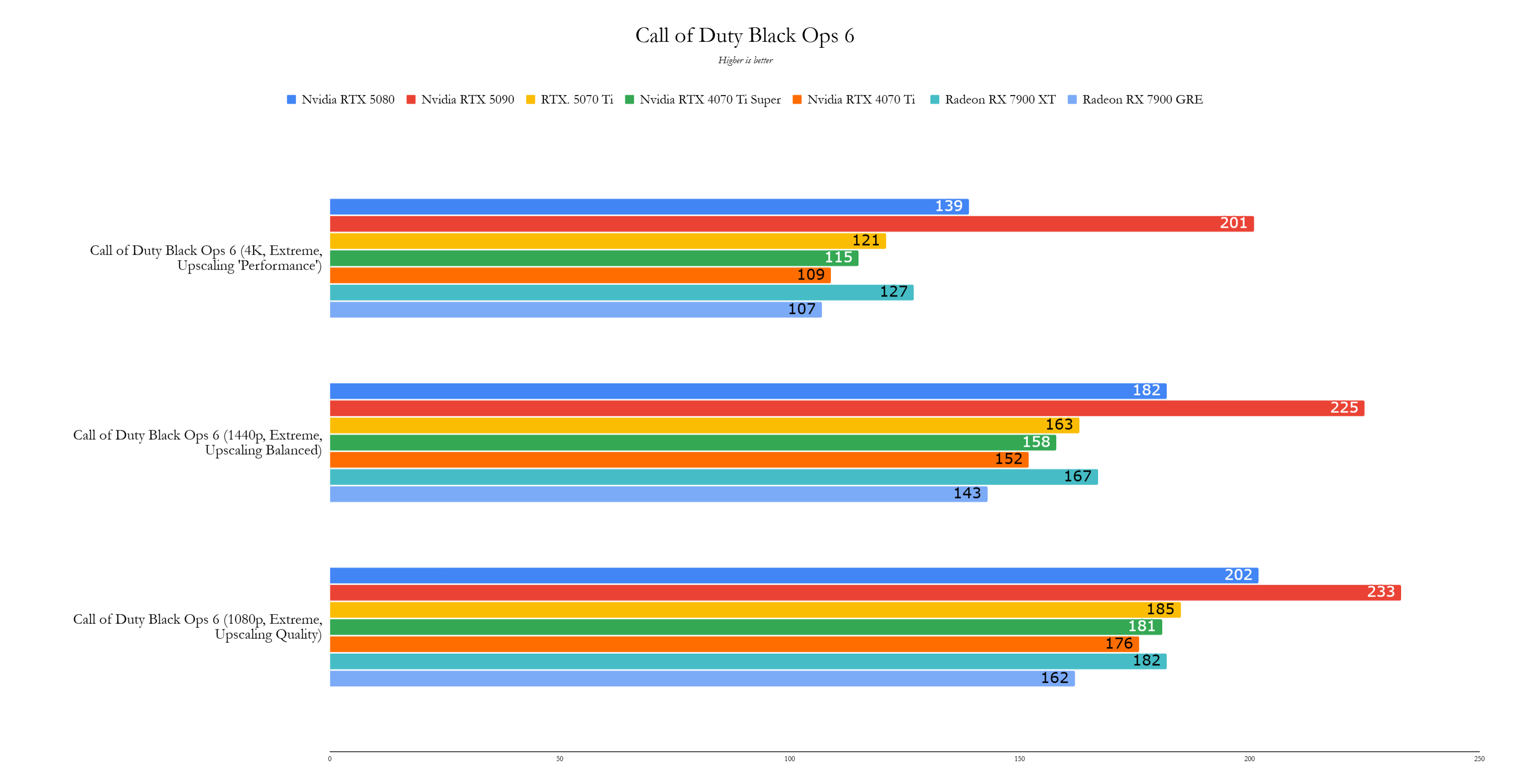
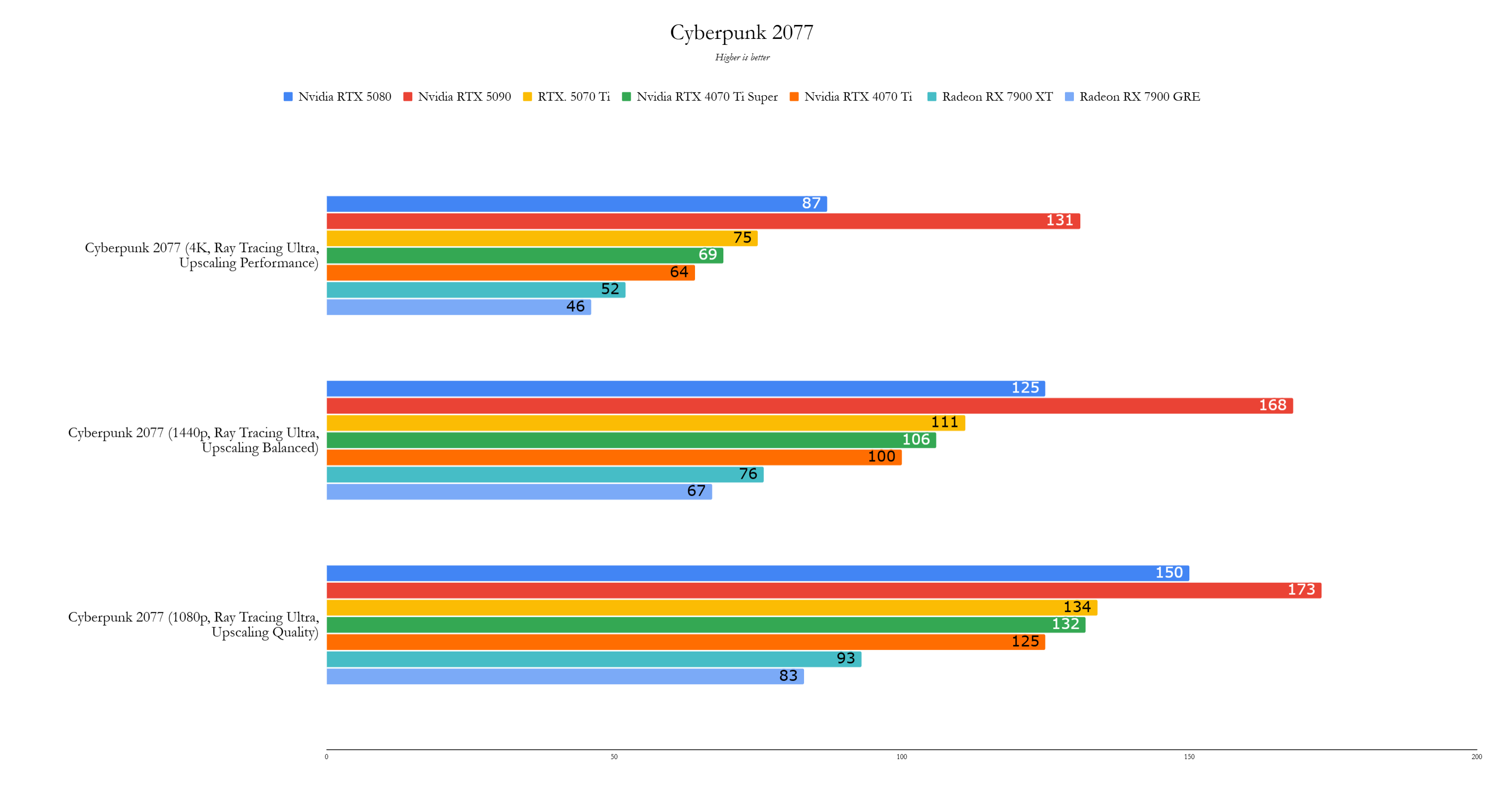
Performance
At 4K, the RTX 5070 Ti outperforms the RTX 4070 Ti Super by 11% and the RTX 4070 Ti by 21%, marking a significant generational improvement. It consistently delivers over 60 fps at 4K in demanding titles like Black Myth Wukong and Cyberpunk 2077.
The test system used included an AMD Ryzen 7 9800X3D, Asus ROG Crosshair X870E Hero motherboard, 32GB G.Skill Trident Z5 Neo RAM at 6,000MHz, a 4TB Samsung 990 Pro SSD, and an Asus ROG Ryujin III 360 CPU cooler. The RTX 5070 Ti was tested at stock settings to reflect its performance at the $749 MSRP.
In 3DMark Speed Way, the RTX 5070 Ti scores 7,590 points, a 19% improvement over the RTX 4070 Ti Super and 36% over the RTX 4070 Ti. In Port Royal, it achieves 18,839 points, showcasing its potential for future optimizations.
In gaming scenarios, the RTX 5070 Ti delivers 121 fps in Call of Duty: Black Ops 6 at 4K Extreme, a modest 5% improvement over the RTX 4070 Ti Super. In Cyberpunk 2077, it achieves a 9% lead over the RTX 4070 Ti Super and 17% over the RTX 4070 Ti, maintaining 75 fps at 4K with Ray Tracing Ultra.
Metro Exodus: Enhanced Edition sees the RTX 5070 Ti at 48 fps at 4K on the Extreme preset, slightly ahead of the RTX 4070 Ti Super's 45 fps. In Red Dead Redemption 2, it's 2% slower than the RTX 4070 Ti Super, achieving 113 fps. Total War: Warhammer 3, without ray tracing or upscaling, shows the RTX 5070 Ti at 78 fps, a 15% improvement over the RTX 4070 Ti Super and 30% over the RTX 4070 Ti.
In Assassin's Creed Mirage, the RTX 5070 Ti achieves 149 fps at 4K with the Ultra High preset, slightly behind the Radeon RX 7900 XT's 150 fps. Black Myth Wukong sees it at 66 fps at 4K with the Cinematic Preset and DLSS at 40%, a 10% improvement over the RTX 4070 Ti Super. Forza Horizon 5 delivers 152 fps at 4K with the Extreme preset, a 15% improvement over the RTX 4070 Super and 21% over the RTX 4070 Ti, and a 10% lead over the Radeon RX 7900 XT.
In today's market, even mid-range graphics cards like the RTX 5070 Ti are capable of delivering 4K performance. At its starting price of $749, it offers the best value for money, especially for those with 4K displays. It's the first RTX 5000 series card to provide a significant performance uplift over its predecessor at a more accessible price point than the $799 RTX 4070 Ti.


 6 Images
6 Images




 12 Images
12 Images



 LATEST ARTICLES
LATEST ARTICLES 

